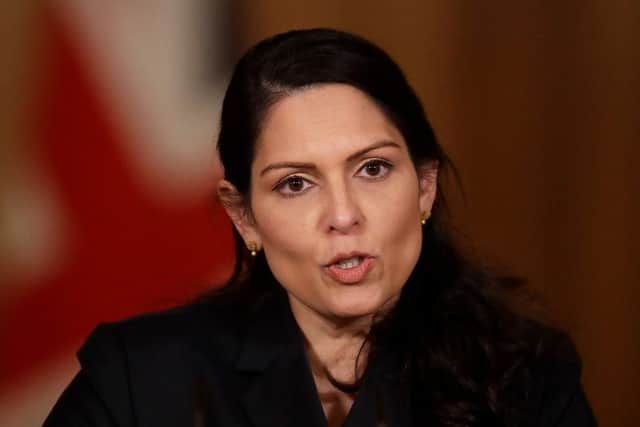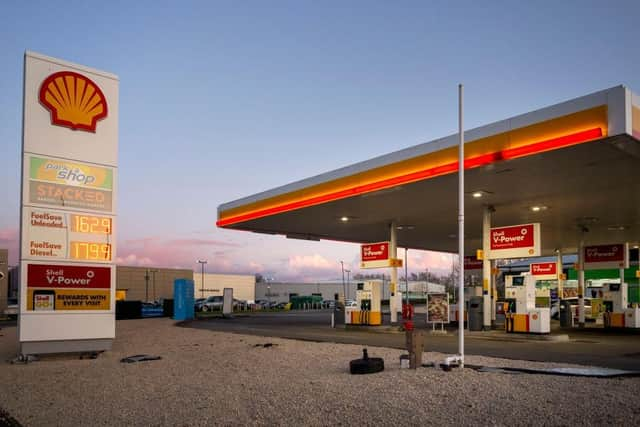Fuel protests: Police encouraged by Home Secretary Priti Patel to crack down on protesters
This article contains affiliate links. We may earn a small commission on items purchased through this article, but that does not affect our editorial judgement.
and live on Freeview channel 276
Home Secretary Priti Patel has asked Britain’s police forces to use the new powers bestowed upon them in the Police, Crime, Sentencing and Courts Act 2022 to crack down on fuel protesters.
As people across the country are asking for a cut on fuel prices, some are taking to the streets to express their dismay. However, they are set to be met with a police force that is being actively encouraged by its government to stamp out their protests.
Advertisement
Hide AdAdvertisement
Hide AdAccording to the RAC, the average price of a litre of petrol in the United Kingdom stands at 191.43p. Meanwhile, the average price of litre of diesel is 199.05p and super unleaded has an average price of 203.79p per litre.


What new powers do the police have?
According to gov.co.uk, the Police, Crime, Sentencing and Courts Act 2022 “widens the range of conditions that the police can impose on assemblies”. Essentially, this means that the police will be able to break up protests with far less difficulty. Additionally, courts will also be able to deal out harsher sentences to protesters – including lengthy prison sentences of up to 10 years.
Previously, the harshest criminal sentence for protesting was a £1,000 fine – however, this is now far from the case.
Police will also be allowed to enact stop, search and seizure procedures on protesters, to eliminate the risk of them carrying weapons and the like.
Advertisement
Hide AdAdvertisement
Hide Ad

These new powers given to the police have been put in place to help crack down on disruptive protests, which, according to gov.co.uk, are “a drain on public funds”. Gov.co.uk also claims that the Extinction Rebellion protests in 2019 cost the country no less than £37 million to quash.
Gov.co.uk insists that protests in the UK are not banned or criminalised. Despite this, it is likely that these new measures will sway large amounts of people from protesting to avoid a criminal record and a potential prison sentence.
Where will the protests be taking place?
The main motorways and roads being targeted by fuel protesters are the A12, the M5 and the M4. As such, if you’re able to, it may be a good idea to avoid these roads over the next few days.
On Monday, the police made 12 arrests on the M4, with their reasoning being that the protesters were causing disruption to emergency services. The protests began at around 7am, with the police descending upon the scene at 8.30am.
Advertisement
Hide AdAdvertisement
Hide AdFour arrests were carried out as the police arrived – by 10.45am, an additional eight arrests had been made. The group carried out their protest by driving at around 30mph on the motorway – well under the speed limit, significantly slowing traffic ahead of them. This form of protesting has been named “go slow”.
This particular protest was organised by Fuel Price Stand Against Tax on social media. According to reports, police are conducting discussions with the main organiser of the protest.